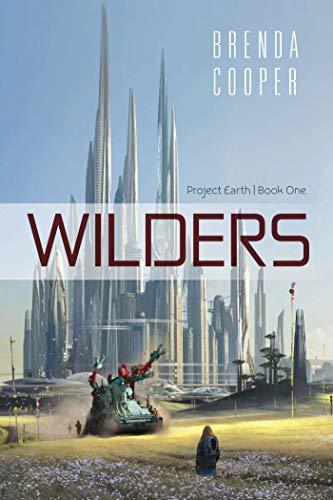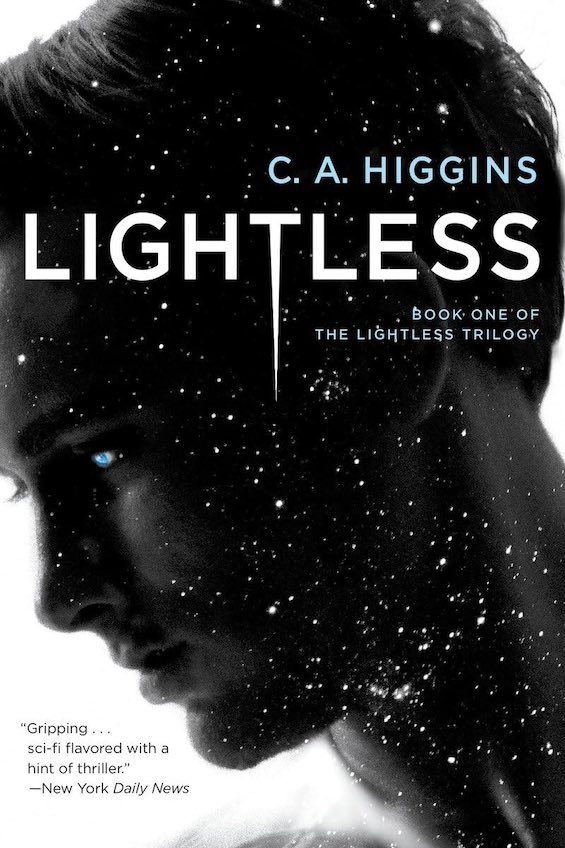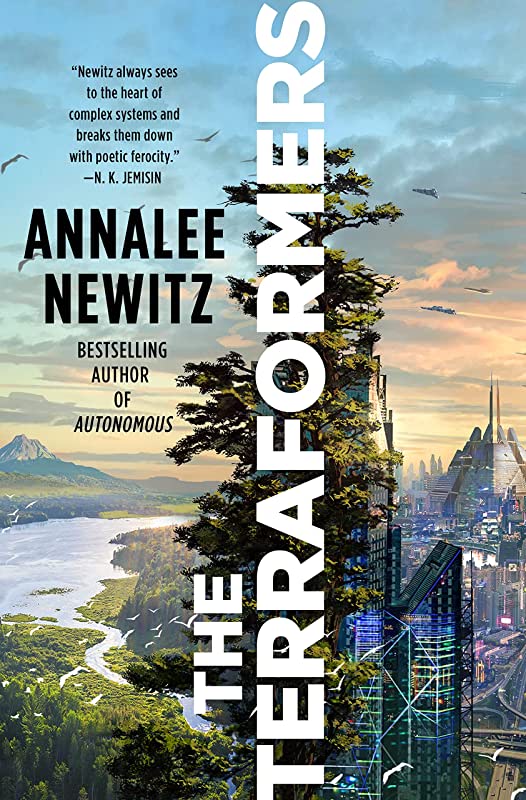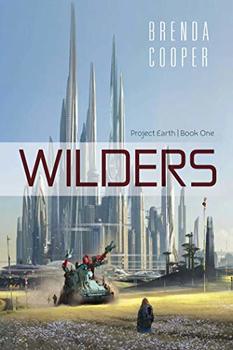
Climate change has claimed a sub-genre of its own within science fiction. Outstanding examples include Barbara Kingsolver’s Flight Behavior, The Windup Girl by Paolo Bacigalupi, and Margaret Atwood’s Oryx and Crake. No doubt there are hundreds, if not thousands, of others. So, any less prominent author must offer up something truly innovative to get noticed in such illustrious company. And at first that seems to be the case with Brenda Cooper‘s novel, Wilders. Unfortunately, the book’s promising start all too soon wanders off into confusion and ends in a muddle. This is climate change science fiction in which the plot runs amok as well as the climate.
In the future Cooper imagines, Seattle, Washington and Vancouver, British Columbia have merged as Seacouver and (apparently) seceded from their respective countries. A pair of visionary mayors pulled this off decades earlier, launching a series of breakaway city-states around the globe that house the bulk of the world’s surviving population. These domed megacities (“Inside”) protect people from the ravages of a climate gone wild, leaving the countryside (“Outside”) to be laid to waste by monster storms while feral survivalists accelerate the mass extinction of animal and plant life.
Wilders (Project Earth #1) by Brenda Cooper (2017) 370 pages ★★★☆☆
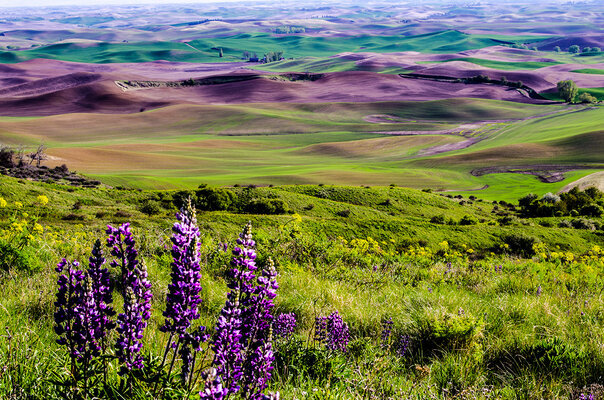
in Wilders is set. Image credit: Scenic Views
To preserve the possibility of a future for the human race, the cities have undertaken a massive program of “rewilding.” With teams of trained naturalists commonly called “wilders” and enormous “ecobots,” they have been attempting to restore a semblance of balance in rural areas. Unfortunately, the rewilding is not going well. And Lou and Coryn Williams, the two appealing young women who are at the center of this story, become deeply enmeshed in the chaotic and violent political conflicts that have arisen as a result.
Climate change science fiction that starts well
So far, so good. During Lou and Coryn’s teenage years, their parents committed suicide out of desperation for the coddled life they led in a city where they have access to everything but meaning and fulfillment. As soon as she graduates from high school, Lou leaves Coryn behind in the orphanage and ventures Outside to join the rewilding. Four years later Coryn follows her trail. But she soon finds that the world Outside threatens to kill her at every turn. Lou had misled her with tales of life in a rural paradise. And when she finally catches up with Lou, the harsh truth about the state of the world becomes inescapably clear.
A promising premise betrayed
Sadly, the world Coryn confronts is not just dangerous but bewildering. And Cooper does little to clarify the confusion. I get the impression that she rushed this book off after a single, sloppy draft. That’s probably not the case. But I can’t imagine any other explanation. You might expect that any climate change science fiction novel would challenge your assumptions about the logic on which human life is lived. But Cooper goes much, much too far in Wilders. The book is filled with inconsistencies and questionable propositions. For example:
- If it’s credible that some day Seattle and Vancouver might merge, it most certainly is not believable that the resulting city-state could secede from both Canada and the United States. Not in any foreseeable future. And this story is clearly set sometime in the twenty-first century, since the year 2010 is mentioned in the text and appears to be within the living memory of an older character.
- Is it conceivable that climate change will drive the human race into domed cities? Perhaps. Some might even say it’s likely. But not in this century. And the devastation Cooper portrays in the countryside, while entirely credible in the long run, seems highly unlikely before at least the twenty-second century.
- On several occasions, Cooper states that Seacouver’s population is in the billions. This is simply preposterous. Today, the two principal cities in the city-state she envisions house a total metropolitan population of under seven million. In the future portrayed in Wilders, that population would certainly grow substantially. But by an order of magnitude to seventy million, let alone more than two orders of magnitude to billions? Nonsense.
Shoot the proofreader!
To compound the problem, it doesn’t appear that anyone proofread this book. (If in fact someone did, that person needs to find a new line of work.) The text abounds with missing or misplaced articles and prepositions and other obvious typographical errors. Here are just a few of many, many examples:
- “They’ll to try to track where money is going.”
- “The car pulled into to a private parking lot.”
- “Maybe that was already happened.”
- “What do you think is going happen?”
There’s no excuse for this sort of thing. Given the existential threat our species faces in the decades ahead, we can all benefit from well-written climate change science fiction to steel us for the painful effort to forestall the worst effects. So, a sad display like this novel is doubly disappointing.
For further reading
For far better examples of climate change science fiction, see:
- Flight Behavior by Barbara Kingsolver (Barbara Kingsolver writes eloquently about climate change)
- The Windup Girl by Paolo Bacigalupi (One of the best science fiction novels I’ve ever read)
- Oryx and Crake (MaddAddam Trilogy #1) by Margaret Atwood (Margaret Atwood’s brilliant dystopian fiction)
- New York 2140 by Kim Stanley Robinson (A grim but hopeful view of New York underwater in 2140)
If dystopian fiction is to your taste, check out my latest book that analyzes 62 dystopian novels, Hell on Earth: What we can learn from dystopian fiction.
For more good reading, check out:
- The top 10 dystopian novels reviewed here (plus dozens of others);
- The ultimate guide to the all-time best science fiction novels;
- Great sci-fi novels reviewed: my top 10 (plus 100 runners-up); and
- Seven new science fiction authors worth reading.
And you can always find my most popular reviews, and the most recent ones, plus a guide to this whole site, on the Home Page.

